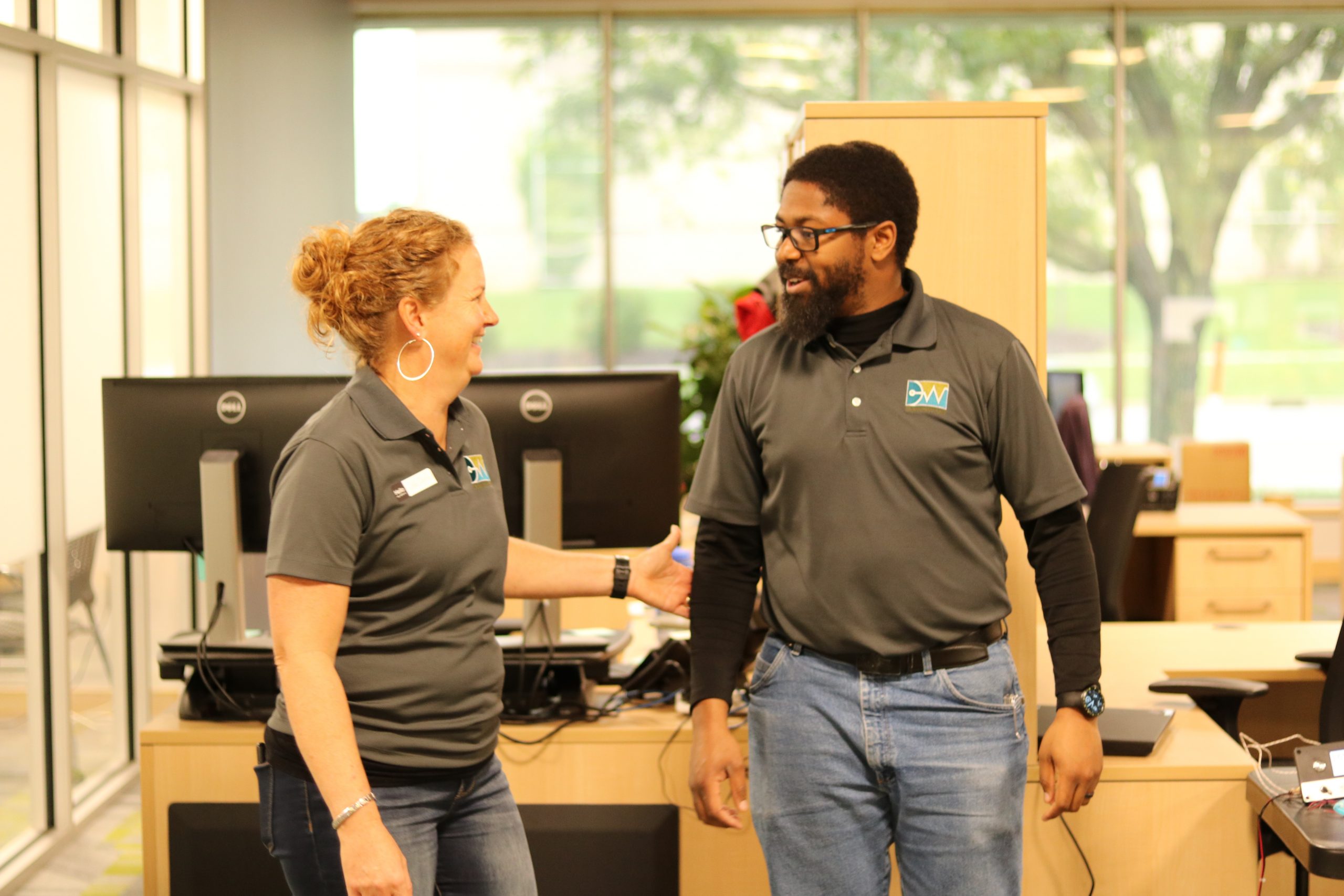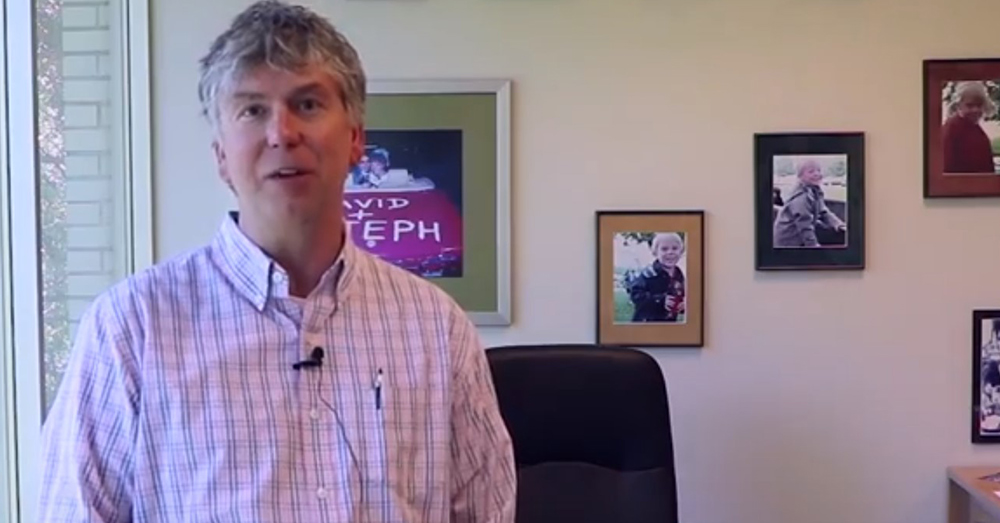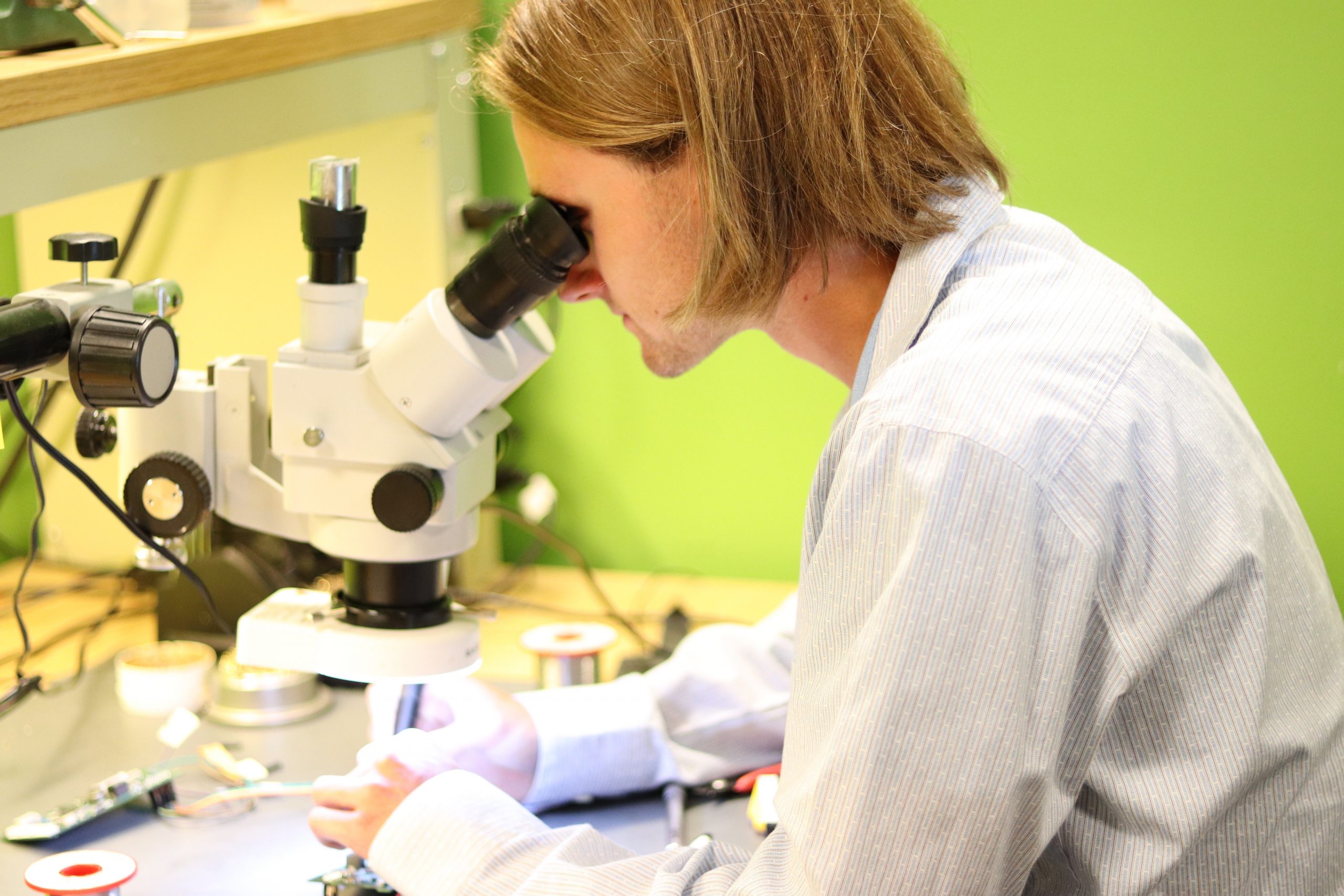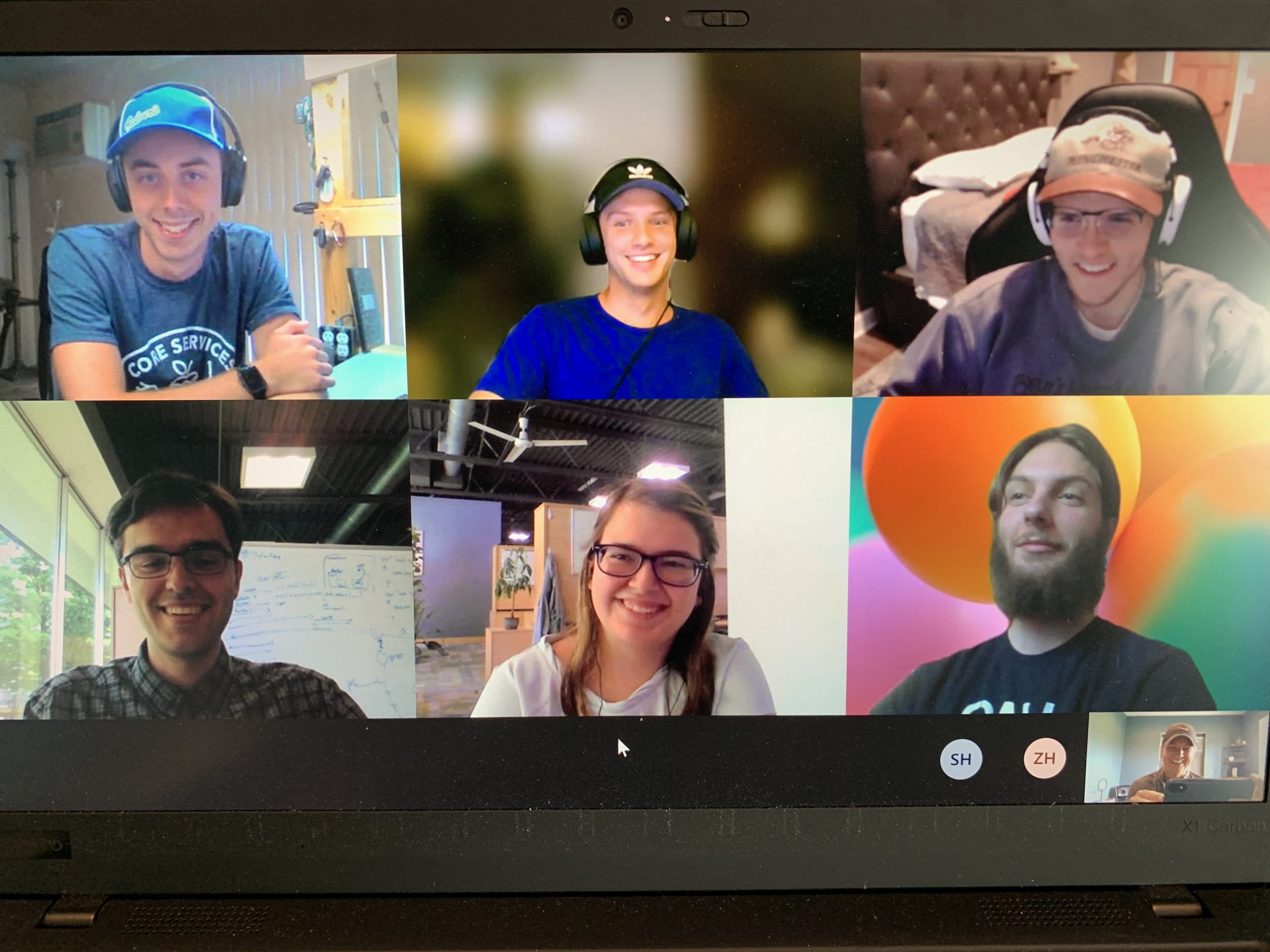
Just a few months after Kendra Francis heard she was a member of DornerWorks intern class of 2020, the world went inside and didn’t come out for months.
Students were sent home from school, masks were put on in public, and our collective sense of workplace was redefined in digital terms.
“I had to move home because I was living on campus,” Francis says.
Somewhere in the tension of the first week of quarantine, Francis and her fellow interns received an email from DornerWorks recruiting manager Deb DeVries. It was a welcome video from the Group managers they would soon be working with and a virtual tour of the DornerWorks campus guided by company president David Dorner.

Francis, joined by Josh Johnston, Luke Metz, Philip Picard, and Scott VanderToorn began working with DornerWorks engineering managers and mentors in May. DeVries led the group through introductions online, uncovering a few interesting facts about the team during ice breaker exercises. She had each new team member post a selfie and a picture of the view from their home office.
“It was a great way for us all to see where we were working from and what our remote offices felt like,” DeVries says.

She has since followed that up with online Scattergories sessions and trivia competitions that involve both the interns and their mentors.
Even while working from home, each of these interns is still able to contribute to the team in meaningful ways. Francis, for example, has been improving her PCB soldering skills and using OrCAD software to update design schematics.
Picard has been contributing to the Open Source Ventilator project alongside Francis and performing some smaller tasks for an IoT smoker grill development team.
“The internship has been going really well,” he says. “I like that DornerWorks gives interns real, challenging projects that allow me to experience what the real-life work is like. The projects can be challenging but without the challenge I would be sitting bored at home, so I am enjoying work quite a bit.”
Johnston, also contributing to the IoT smoker grill project, says he appreciates the way software tools like Microsoft Teams, Discord, BlackBoard Collaborate, and others have helped him “switch from work mode to school mode with ease.”
“it is quite nice to be able to clock out of work at 3: 59 p.m. and switch to my personal computer and start class at 4 p.m.,” he says. “This would obviously not be possible during normal circumstances. I would have had to leave work early to drive to campus to get to class on time.“

DornerWorks project and group managers provide interns with technical tasks to accomplish. Meanwhile, mentor engineers guide them through their foray into real life experience.
DornerWorks chief IoT engineer Greg Nowak says it’s the role of mentors in the program to, “answer any questions the interns might have about working at DornerWorks as well as guide their experience to better prepare them for school and future work.”
“As a mentor I’ve helped interns work through technical issues on projects as well as helped them prepare for future semesters in school,” he says. “This often comes in the form of advice about classes to take, technologies to look in to, what types of Senior Design Projects to be thinking about, etc.”

Just a few years ago, embedded engineer and mentor Kevin Mahlie was an intern himself. Now he guides interns through circuit analysis and hardware soldering and understands well the concerns students might have during their internship.
“It’s our responsibility to make the new co-op students/interns feel comfortable and welcomed in the DornerWorks company culture,” he says. “This goes as far as engaging in company social events and helping the new mentees find interests in their fields.”
I.T. Lead Michael Banning mentors DornerWorks I.T. interns to help them gain valuable experience with real life situations.
“I.T. is all about customer service, Policies, procedures, communication, and Teamwork,” Banning says. “By mentoring on what we do it builds confidence within our interns to take ownership of projects that they can take pride in building their skill set. Most challenging is being patient, taking the time to answer questions they might have, and completing your own work within the allotted time.”

Thanks to the foresight and planning of DornerWorks I.T. and leadership teams, the transition to a remote work environment was made with minimal disruption. Engineers continue to collaborate with each other and customers on complex projects from their home offices, occasionally stopping by the 3445 Lake Eastbrook facility to check in and out necessary tools and equipment. However, working from home isn’t without its challenges.
Distance poses a challenge. It also makes it harder to establish a human connection.
“I like getting to talk to interns face to face, joke around and have a good time in the office,” Nowak says. “I also like taking them out to lunch and getting to know them on a more personal level.”
Distributed workplaces also limit the types of tasks interns can feasibly handle. Most interns start out at DornerWorks familiarizing themselves with hardware-centric tasks like soldering and integration tests. This year’s group of interns will field less hands-on hardware work until it is safe to work together on site with their mentors, though Mahlie has made sure the subject is still a part of the program. He facilitates soldering skill lessons over video conference calls. Interns use a digital microscope to practice SMD rework, inspect each other’s’ work and share knowledge.
Other tasks involving a little more interpersonal engagement are made easier with a robust communication framework that joins all DornerWorks staff and interns, aka Microsoft Teams and a common knowledgebase. This has set a solid foundation for DornerWorks interns to learn and flourish as they move toward full-time status.
“My internship experience has certainly been both challenging and rewarding,” says Johnston.
Johnston built a web application that automates the process of displaying proof that software has gone through the peer review process, which is required for all software components developed at DornerWorks.
“This software will be used by many people at DornerWorks and it is very rewarding to think that a project that I completed by myself as an intern will be helpful to my coworkers and contribute to the overall productivity and efficiency of the workplace,” Johnston says, admitting he faced several challenges along the way. “I had almost no prior experience building web applications, so the process involved me teaching myself HTML, CSS, and JavaScript. I had also never worked with a REST API (which the project was based on), so this was another learning curve to overcome. This made finishing the project all the more rewarding.”